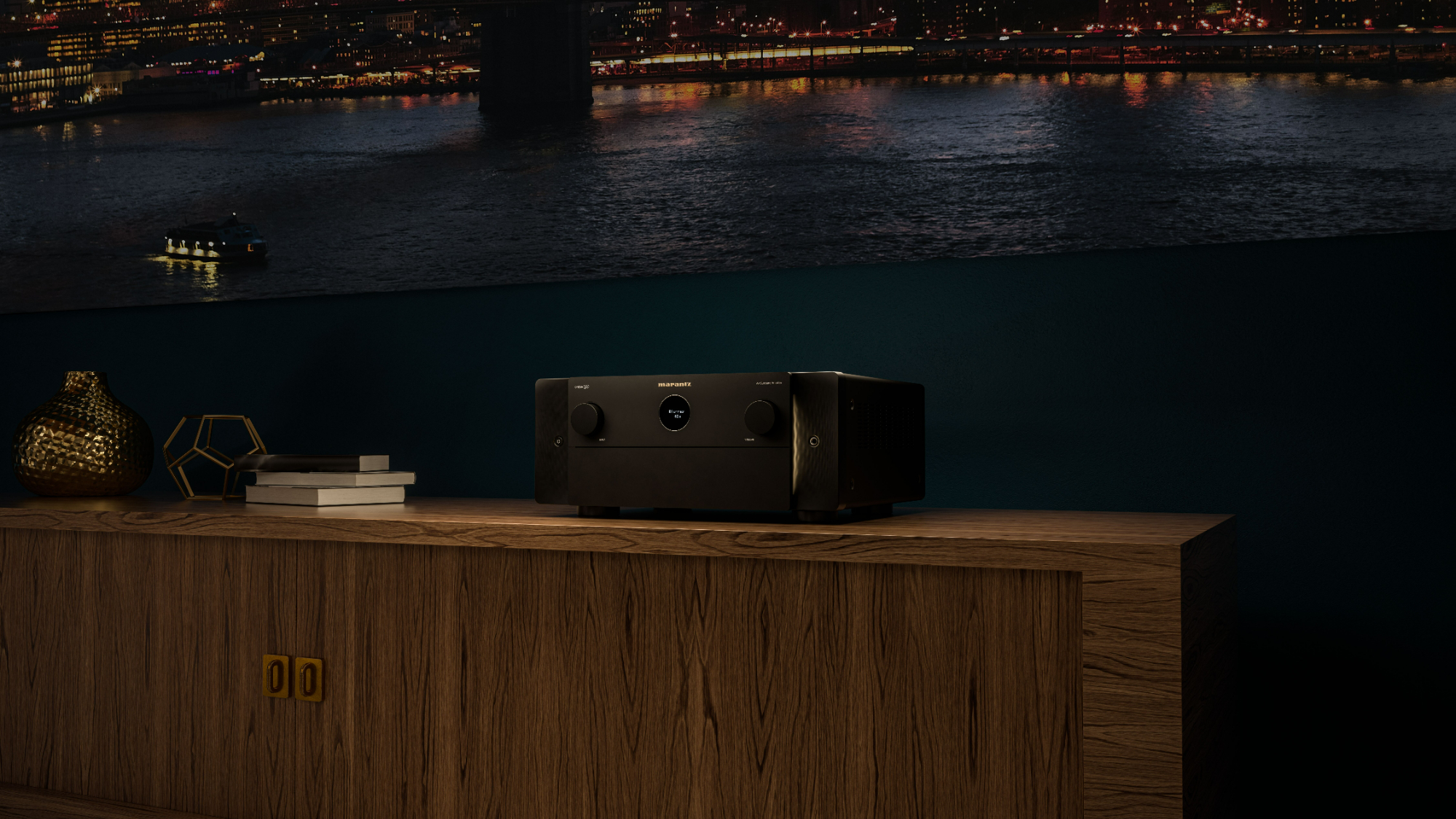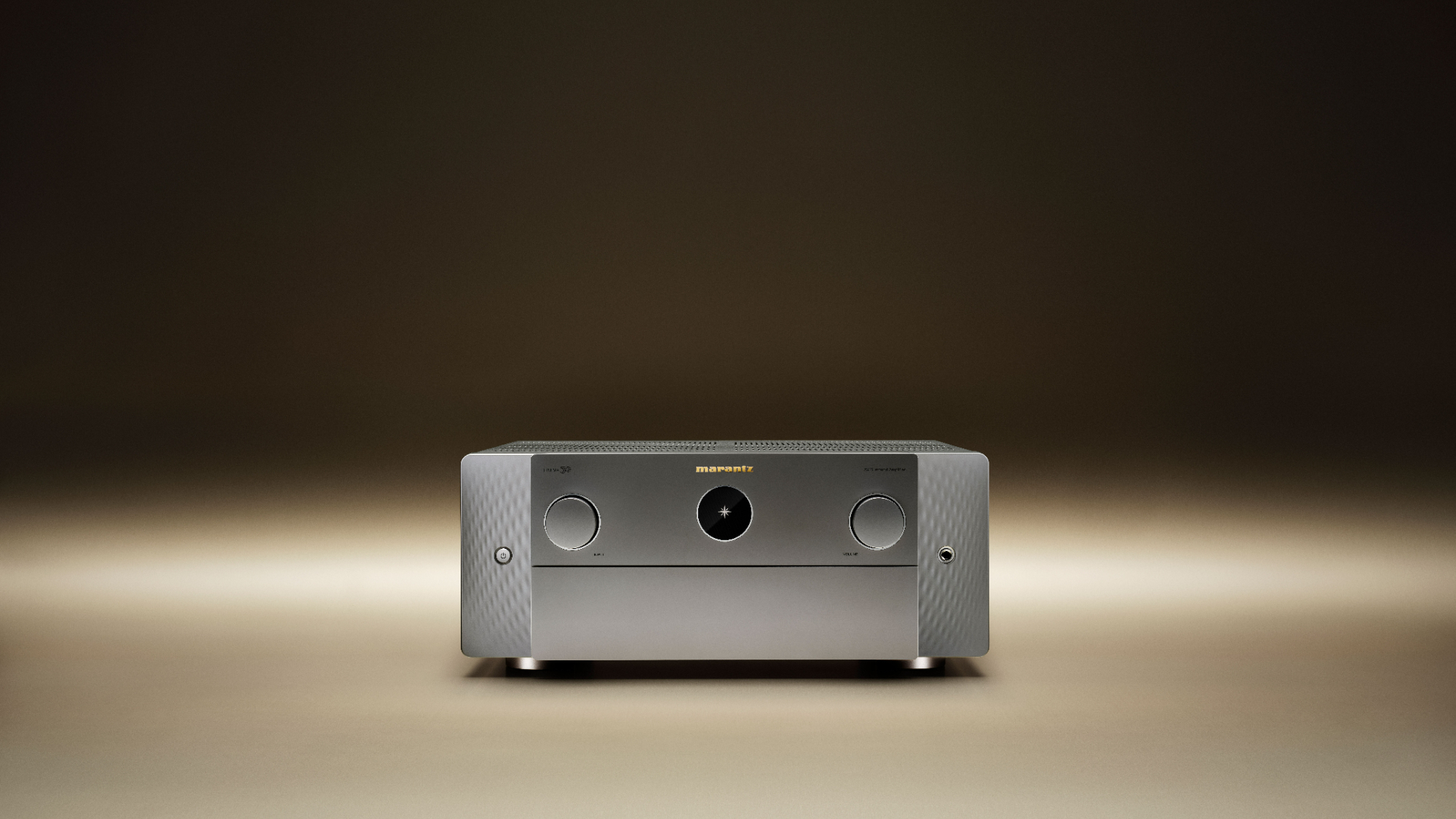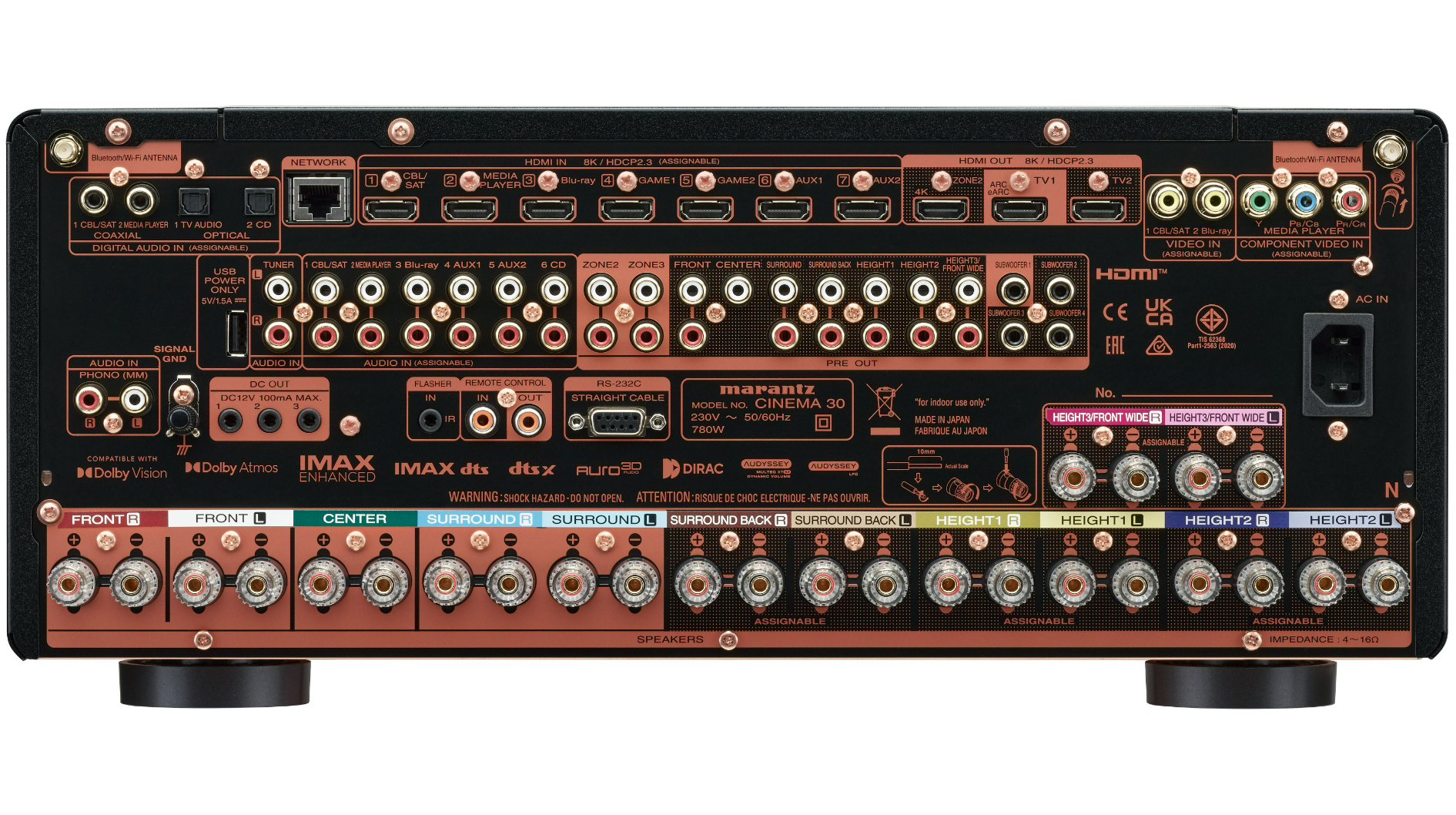Marantz's stylish new home cinema amplifier should sound as good as it looks
Update: Marantz pushes back release date and increases price

UPDATE 06/02/2024: Marantz has pushed back the release date of the Cinema 30 and increased the price.
Originally scheduled to release on the 30th of January, the Cinema 30 will now go on sale in mid-March. The original announcement seems to have been timed to coincide with the launch of the home cinema amplifier, but this is no longer the case.
We've also been informed that the Cinema 30 will retail for £100 more than the initially announced price. Marantz has changed the price from £3900 to £4000, which isn't an astronomical leap in price by any means, but still something that's worth noting.
ORIGINAL STORY 31/01/2023: Marantz has unveiled its latest home cinema amplifier as part of its reference series. The Cinema 30 seems to check all the boxes, with an eye-catching design and an equally impressive set of sound features, but this all comes at a price.
Design is at the forefront of the Cinema 30, which is certainly apparent in the images we've seen of it. Its suave, minimalist design sports either a black or silver/gold finish, with a smooth midsection adorned with a circular display, flanked by volume and input selection knobs. Below this is a fold-down panel that lowers to reveal a second display, as well as buttons to control various features and settings, which are likely mirrored on the equally sharp remote.
You'll find textured side panels on either side of this interface, which contrasts the smooth finish on the front of this amp nicely; while the contrasting gold accents look particularly fetching on the black model. There's even lighting along the edge of the unit, which should add some ambience to your film night, although you'll want to turn that off if you're concerned with light pollution. First impressions of this amp are strong, however, beauty is only skin deep – so what's under the surface?

The Cinema 30 is built around a symmetrical, monolithic amplifier, which it boldly claims to be the "most advanced amplifier layout available in the AVR category". The amplifier channel on this unit is mounted on a separate PCB opposite the power supply. This, unsurprisingly, was a move made to reduce distortion and Marantz states it has been successful in this mission, as this amp is set to deliver "remarkably clean and instantaneous low-distortion power".
Get the What Hi-Fi? Newsletter
The latest hi-fi, home cinema and tech news, reviews, buying advice and deals, direct to your inbox.
It features 11 channels of 140W amplification, ideal for a full 7.1.2 Dolby Atmos speaker system, while the 13.4 channel onboard processing with pre-amp mode allows for compatibility with external power amplifiers.
Marantz assures us that "all aspects of the power amplification, power supply and signal path have been carefully honed by the Marantz Sound Master"; our expectations are certainly high. All signals (digital and analogue) pass through the Marantz HDAM SA-2 pre-amplifier stage to deliver the "warmth and musicality" that the brand aims to deliver across its product lineup.

The Cinema 30 uses the Analog Devices SHARC dual DSP chipset, alongside a 32-bit ESS Sabre DAC. This pairing is set to include jitter reduction, as well as having the ability to decode a plethora of audio sources and formats, including Dolby Atmos, DTS:X Pro, IMAX Enhanced and Auro 3D.
It also has Audyssey's MultEQ XT32 advanced room optimisation calibration system on board, ensuring compatibility with a wide range of speakers and listening environments. This is paired with an optional Dirac Live Bass Control calibration system which will allow you to connect up to four independent subwoofers.
The Cinema 30 also appears to be well equipped in the connectivity department too; sporting seven HDMI sockets supporting up to 8K (we assume this covers 4K/120Hz too), as well as sporting a wide range of wireless connectivity. AirPlay 2, Spotify Connect and Bluetooth are paired with Marantz's (and Denon's) HEOS wireless streaming system. It can also be integrated with Alexa, Google Assistant and Siri-enabled smart speakers for voice control.
The Marantz Cinema 30 is available now for £3900 / $4500 (around AU$7515).
MORE:
Check out our picks for the best AV receivers
And our Sony TA-AN1000 review
As well as our Arcam AVR31 review
Lewis Empson is a Senior Staff Writer on What Hi-Fi?. He was previously Gaming and Digital editor for Cardiff University's 'Quench Magazine', Lewis graduated in 2021 and has since worked on a selection of lifestyle magazines and regional newspapers. Outside of work, he enjoys gaming, gigs and regular cinema trips.
